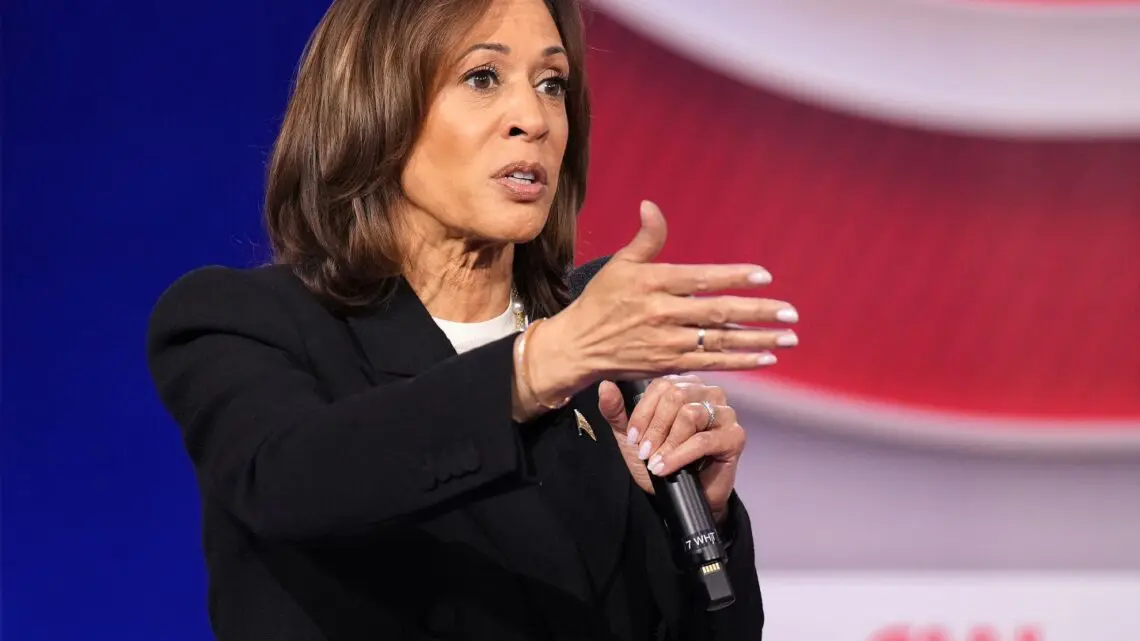Harris expresses disappointment in major newspapers’ endorsement choices
Vice President Kamala Harris has publicly criticized the choices made by two prominent newspapers to refrain from endorsing any presidential candidates. Speaking on The Breakfast Club with Charlamagne tha God, Harris shared her take on the recent decisions by The Washington Post and the Los Angeles Times, revealing her concerns about the potential influences at play.
Reactions to media neutrality
In a surprising move, two of the nation’s most influential newspapers declared they would not be endorsing a candidate for the upcoming presidential election. This revelation has sparked significant public and journalistic debate. For the first time since 1988, The Washington Post decided to remain neutral, while the Los Angeles Times followed suit.
Harris did not mince words, stating, “It’s disappointing, no doubt.” She alluded to the financial powerhouses behind these publications, suggesting that Jeff Bezos (owner of The Washington Post and founder of Amazon) and Patrick Soon-Shiong (biotech billionaire who owns the Los Angeles Times) might have ulterior motives influencing this unexpected stance.
Harris criticizes Trump’s billionaire connections
Harris elaborated on her disappointment, connecting it to broader themes of wealth and influence in politics. She noted, “It’s billionaires in Donald Trump’s club. That’s who’s in his club. That’s who he hangs out with, that’s who he cares about.” Harris underscored that Trump’s policies have historically favored the wealthy, reminding listeners of his significant tax cuts for billionaires and the largest corporations during his term.
Harris emphasized, “His policies are not about middle-class folks. He’s not sitting around thinking about what he can do to take care of your grandmother and your grandfather.” Instead, she argued, Trump is preoccupied with personal grievances and the interests of his affluent peers.
The Los Angeles Times’ editorial fallout
The decision by the Los Angeles Times not to endorse a candidate led to significant internal turmoil, resulting in the resignation of the editorial page editor, Mariel Garza, and other key staff members. Soon-Shiong, the paper’s owner, had proposed a factual analysis of each candidate’s policies as an alternative to traditional endorsements. However, the editorial board rejected this offer, exacerbating the internal conflict.
The Washington Post’s neutrality stance
The Washington Post’s decision also sparked controversy, given its long history of political endorsements. Jeff Bezos defended the move by claiming that endorsements could create a “perception of bias” among readers. The paper’s official stance was to let the public decide which candidate aligns with their values, without any editorial influence.
Several high-profile journalists, including Bob Woodward and Carl Bernstein, have expressed their disapproval. They argue that, under Bezos’ ownership, The Washington Post has dedicated extensive resources to investigating the potential dangers of a second Trump presidency. This makes their decision to abstain from endorsing any candidate even more perplexing.
The broader implications for journalism and democracy
These decisions from two of the country’s most influential newspapers have not only stirred public debate but also highlight a deeper issue within modern journalism. As newspapers navigate the balance between perceived neutrality and providing guidance to their readers, they must also consider the broader implications for democracy.
The non-endorsement trend could be seen as a cautious move to avoid alienating segments of their readership. However, it also raises questions about the role of traditional media in shaping public opinion during critical electoral processes. As we move forward, it will be crucial to watch how these publications continue to navigate their influential roles in an ever-evolving media landscape.
Stay informed with the latest updates and insights—be sure to share and discuss this intriguing development with your network on social media.

 Italian
Italian







